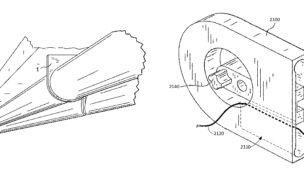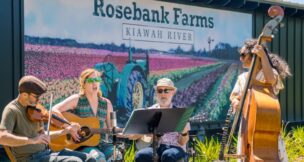Judge strikes down annexation challenge
Staff //March 7, 2019//
A Charleston County judge has struck down an annexation challenge from the city of Charleston and the National Trust for Historic Preservation, ruling that neither party has standing to block North Charleston’s 2017 annexation of an acre along S.C. Highway 61.
“Absent deceitful conduct, there are generally only two groups with standing to challenge a 100% annexation: property owners of annexed land and the attorney general of South Carolina,” wrote Judge Eugene Griffith Jr. in his order. “National Trust and Charleston fall into neither category.”.
North Charleston annexed the acre into the city in late 2017, which opened the door to a 2,000-acre annexation. North Charleston bought the one acre of land from The Whitfield Co., which owns the 2,000-acre parcel, in September 2017. Under state law, that would allow North Charleston to annex the property into city limits if the property is adjacent to existing municipal boundaries. However, the one-acre annexation jumps over a 100-foot parcel of land owned by the National Trust for Historic Preservation and annexed into the city of Charleston in 2005.
Charleston and the National Trust filed lawsuits challenging North Charleston’s annexation in March 2018, fearing that the area could become overdeveloped.
“This area of Highway 61 is very historic, probably the oldest parts of our state, and we have a concern about maintaining the ambience of the plantation district,” said Frances Cantwell, corporation counsel for the city of Charleston, at the time. She added that flooding was also a big concern.
Griffith said that claims from Charleston and the National Trust that their challenge was in the public interest did not give the lawsuit standing, either.
“Both parties … sought to advocate on behalf of citizens statewide in terms of the implications that a ruling in this case might have on other cases across the state down the road,” Griffith wrote. “Ultimately, none of these interests sound so urgent or repetitious that the South Carolina attorney general could not adequately represent the public’s best interest.”
Griffith wrote, though, that if either Charleston or the National Trust did have standing to challenge the annexation, their claim would be legitimate; North Charleston did not lawfully annex the parcel because the municipality’s limits did not share a border with the acre. The one-acre parcel was separated from North Charleston by S.C. Highway 61 and land owned by the National Trust, which is in Charleston.
“North Charleston’s interpretation of the term ‘adjacent’ would open the door to ‘leap frog’ annexations, which this court holds are not allowed … because adjacency is destroyed when there is intervening property,” Griffith wrote.
“Adjacent” has never been defined by the General Assembly but is understood in common law to mean “contiguous,” Griffith wrote in his order.
Charleston spokesman Jack O’Toole said in an email that the city is “disappointed in the court’s ruling,” and plans to ask the judge to reconsider.
“The city also plans to appeal the orders, if necessary,” he said.
i















